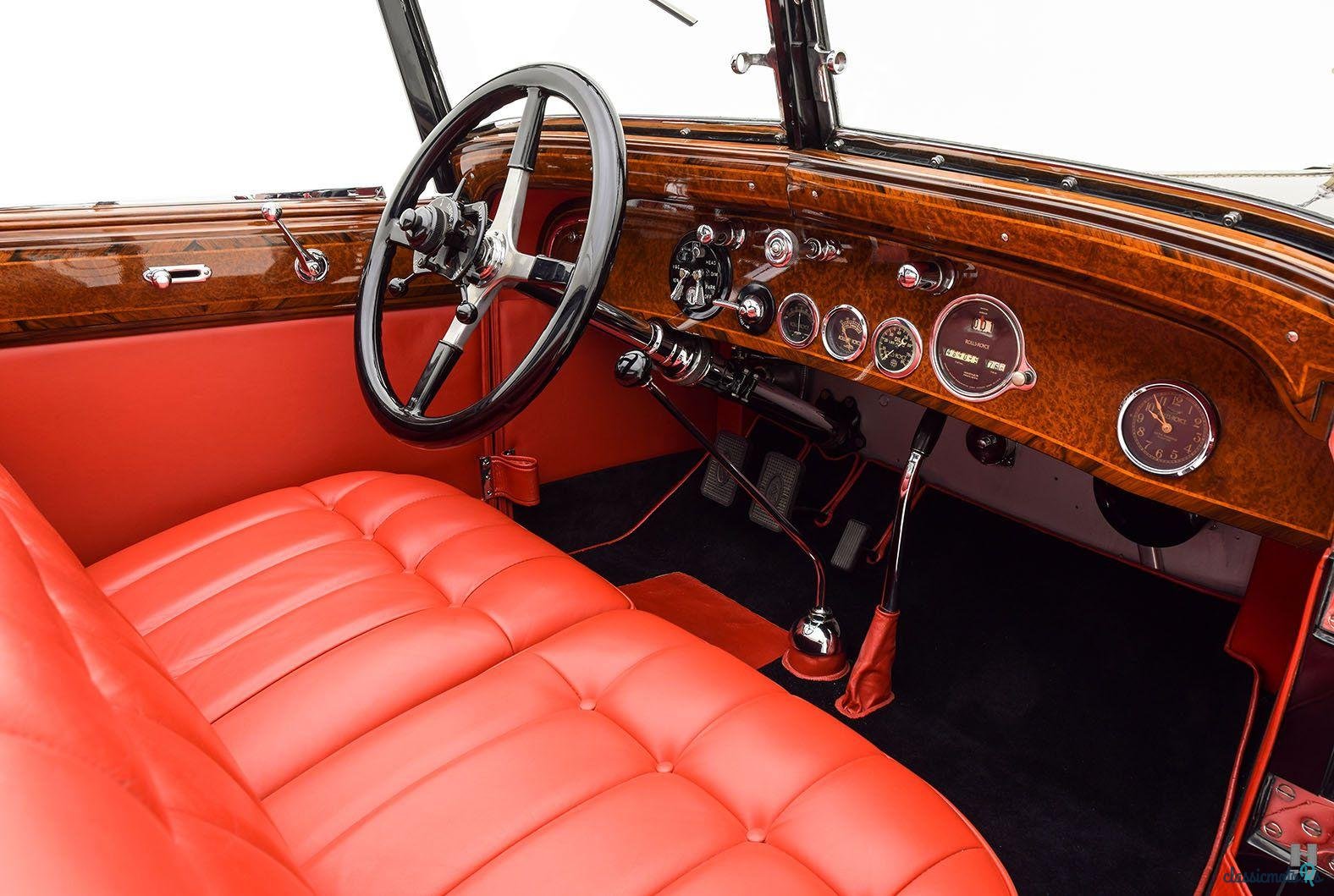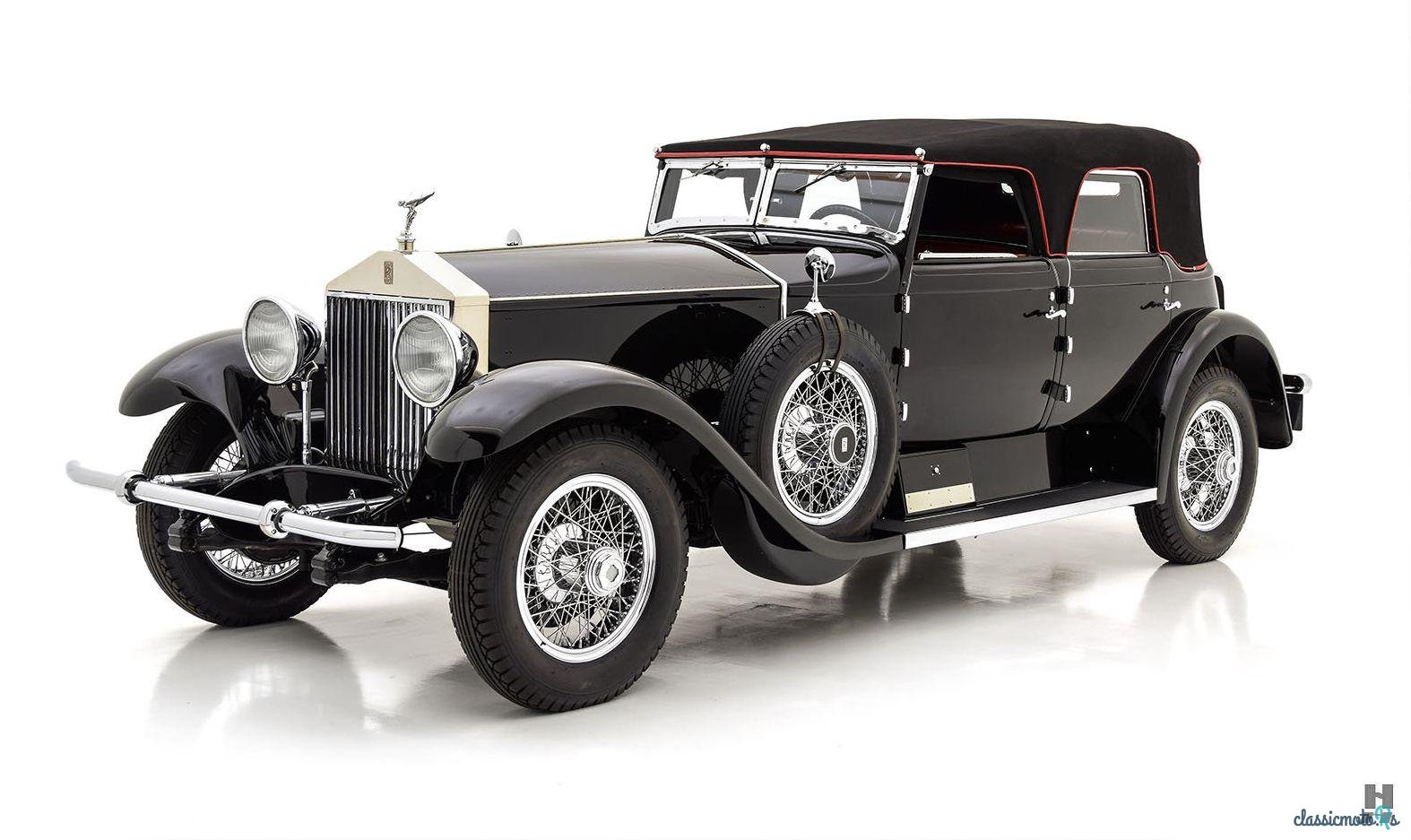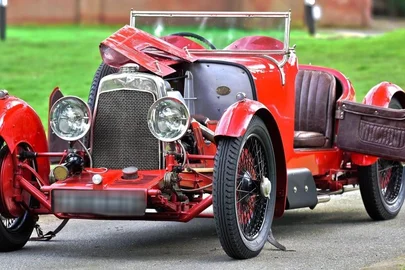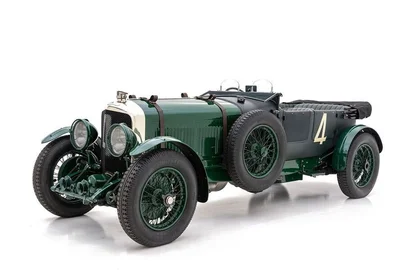


3 foto
1928' Rolls-Royce Phantom I
Diese Anzeige melden!Bewerte!Lesezeichen setzen
$495,000Veröffentlicht 30 März 2019ID: TIHK0m
Abgelaufen
6 Jahre, 11 Monate her
6 Jahre, 11 Monate her
Information from the owner
Alter: 91 Jahre
Außenfarbe: Silber
Verkäuferkommentare zu 1928' Rolls-Royce Phantom I
The Rolls-Royce New Phantom replaced the outgoing Silver Ghost in 1925. The Ghost would be a tough act to follow, having evolved over a nearly 20-year production run and regarded as the car that established Rolls-Royce as the world’s premier motorcar manufacturer. Given the Silver Ghost’s stellar reputation, it was wise for Rolls-Royce to take an evolutionary step in designing the New Phantom. The underpinnings were fundamentally a carry-over from the late, four-wheel brake Ghost, but with many refinements. Not that this was a bad thing, as the chassis had proven itself to be tremendously robust and capable of delivering a driving experience like no other motorcar on the market. It wasn’t until the arrival of the Phantom II in 1929 that an entirely new chassis appeared– a true testament to the integrity of the original design. The engine of the New Phantom (called Phantom I after the Phantom II’s arrival) was almost entirely new. The overhead valve inline six-cylinder displaced 7,668 cc and, the Ghost before it developed its power with remarkable smoothness and refinement.
To meet the ever-growing demand for its products in the critical North American market, Rolls-Royce established a subsidiary in Springfield Massachusetts in December of 1919. Rolls-Royce of America Incorporated was set up in the former American Wire Wheel Company plant, and many of the highly skilled workers were retained to run the assembly line. By 1926, Rolls-Royce of America had acquired Brewster and Company, one of America’s most prestigious coachbuilders. For the New Phantom, Brewster offered a series of 28 catalog bodies, and the majority of Springfield production received Brewster coachwork. However, a few chassis did receive outside coachwork, with some of the most stylish examples coming from the workshops of Carrosserie Hibbard et Darrin in Paris.
Tom Hibbard worked for Brewster where he became friends with Ray Dietrich. The two were fired for freelancing on company time, so they partnered to form LeBaron Carrosserie. After a brief stint at LeBaron, Hibbard left for Paris where he met fellow expat Howard “Dutch” Darrin. The two established a Minerva agency and offered in-house coachwork options for their wealthy clients. Soon, they set up shop creating coachwork for other cars, and while both were Americans, the European influence on their work is strong. The firm folded when Hibbard returned to America to work for GM in 1931. In their brief existence, Hibbard et Darrin produced some of the most stunning and memorable designs on Rolls-Royce, Minerva, Packard, Maybach, and Mercedes chassis.
Hibbard and Darrin’s signature elegance radiates in this car, officially called the Torpedo Transformal Phaeton, built on a Springfield Phantom I chassis, number S 267 FP. Characterized by its low roofline, trapezoidal side windows, and unique B-pillar treatment, this patented design was personally drawn by Darrin. With the top in place, a flap fills the space between the windows to create a B-pillar of sorts, allowing for a weather-tight cabin and a distinct low-slung profile. Lowering the top and side windows gives the car the appearance of a sporting dual-cowl phaeton. The unique styling was by advanced construction techniques. Traditional coachbuilders crafted wooden frames which were then skinned in steel or aluminum. However, Hibbard and Darrin utilized a patented procedure they called “Sylentlite” (silent-light) to build the major body components. The doors, for instance, are one-piece alloy castings, which were not only light but rattle resistant and allowed for tighter tolerances. The remainder of the body is skinned in aluminum alloy to reduce weight.
Chassis number S 267 FP is one of fewer than five known Phantom 1 chassis to wear this stylish Hibbard and Darrin coachwork. Subtle differences distinguish them, and this car is considered the sister to a similar example once owned by Marlene Dietrich, gifted to her by Paramount Studios and featured in her 1930 film Morocco. This car share’s the same split, opening windshield design with the Dietrich car, as well as the distinct roof treatment. The ownership history of S 267 FP is well-documented through accompanying Rolls-Royce Owner’s Club records. Sold new in 1928 to A.H. Chapin, it changed hands less than a year later to Bud A. Lipman of New York, New York. Subsequent owners include Clifton Carr and Franklin Lee. In approximately 1945, Mr. Lee sold it for $200 to Hans Hinrichs of St. Louis, MO. Mr. Hinrichs became the first long-term owner, enjoying the beautiful Rolls-Royce with his family for many years. He displayed it at the National Museum of Transportation in St. Louis, which he co-founded. Toward the end of nearly 40 years in the Hinrichs family, it fell into a state of disrepair and required restoration. It then passed to another St. Louis collector and restorer, David Weber in 1982. Both Weber and Mr. Hinrichs’ son still remember the car fondly from its days in St. Louis.
It then joined the famed collection at the Imperial Palace in Las Vegas, who commissioned a ground-up, nut and bolt restoration which it wears proudly today. Since the late 1990s, it has been lovingly maintained in a significant collection of Rolls-Royce and Bentley motorcars. Finished in the striking livery of black over red hides and accented with a red-piped black top, this is a stunning example of Hibbard and Darrin’s talent. The beautiful restoration has aged exceptionally well, with exquisite paintwork, high-quality plating and beautiful detailing.
The interior is trimmed in the finest materials and opulently appointed in the tradition of the great European coachbuilders. Gorgeous red leather shows a bit of character from occasional use, while the carpets and door panels remain in excellent order. Stunning inlaid woodwork features on the door caps, dash, and division panel. Details include a Swiza clock for the rear compartment and restored instruments and switches in the fascia. The doors have roll-up glass windows to make for a cozy, weather tight driving compartment with the canvas roof in place.
Under-bonnet detailing is up to the same exceptional standards, with the engine number 22677 corresponding with the documents provided by the Rolls-Royce Foundation. The 7.7-liter inline six is a beautiful piece of engineering, presented with finely finished castings and black porcelain fittings. Wiring, plumbing, and fixtures are period correct and presented in exceptional condition, revealing the quality of care it has received in the time since the restoration.
Only a small percentage of Springfield Phantom I chassis went to anyone other than Brewster, and this marvelous Transformal Torpedo Phaeton is one of only 35 Rolls-Royces bodied by the masters at Carrosserie Hibbard et Darrin. A unique amalgamation of British engineering, American craftsmanship, and Parisian style, this distinguished motorcar is suitable for use in tours or concours events. One of the most desirable open Rolls-Royces of the era, this exquisite example will surely satisfy even the most discerning collector.
$495,000
STOCK NUMBER 6410
To meet the ever-growing demand for its products in the critical North American market, Rolls-Royce established a subsidiary in Springfield Massachusetts in December of 1919. Rolls-Royce of America Incorporated was set up in the former American Wire Wheel Company plant, and many of the highly skilled workers were retained to run the assembly line. By 1926, Rolls-Royce of America had acquired Brewster and Company, one of America’s most prestigious coachbuilders. For the New Phantom, Brewster offered a series of 28 catalog bodies, and the majority of Springfield production received Brewster coachwork. However, a few chassis did receive outside coachwork, with some of the most stylish examples coming from the workshops of Carrosserie Hibbard et Darrin in Paris.
Tom Hibbard worked for Brewster where he became friends with Ray Dietrich. The two were fired for freelancing on company time, so they partnered to form LeBaron Carrosserie. After a brief stint at LeBaron, Hibbard left for Paris where he met fellow expat Howard “Dutch” Darrin. The two established a Minerva agency and offered in-house coachwork options for their wealthy clients. Soon, they set up shop creating coachwork for other cars, and while both were Americans, the European influence on their work is strong. The firm folded when Hibbard returned to America to work for GM in 1931. In their brief existence, Hibbard et Darrin produced some of the most stunning and memorable designs on Rolls-Royce, Minerva, Packard, Maybach, and Mercedes chassis.
Hibbard and Darrin’s signature elegance radiates in this car, officially called the Torpedo Transformal Phaeton, built on a Springfield Phantom I chassis, number S 267 FP. Characterized by its low roofline, trapezoidal side windows, and unique B-pillar treatment, this patented design was personally drawn by Darrin. With the top in place, a flap fills the space between the windows to create a B-pillar of sorts, allowing for a weather-tight cabin and a distinct low-slung profile. Lowering the top and side windows gives the car the appearance of a sporting dual-cowl phaeton. The unique styling was by advanced construction techniques. Traditional coachbuilders crafted wooden frames which were then skinned in steel or aluminum. However, Hibbard and Darrin utilized a patented procedure they called “Sylentlite” (silent-light) to build the major body components. The doors, for instance, are one-piece alloy castings, which were not only light but rattle resistant and allowed for tighter tolerances. The remainder of the body is skinned in aluminum alloy to reduce weight.
Chassis number S 267 FP is one of fewer than five known Phantom 1 chassis to wear this stylish Hibbard and Darrin coachwork. Subtle differences distinguish them, and this car is considered the sister to a similar example once owned by Marlene Dietrich, gifted to her by Paramount Studios and featured in her 1930 film Morocco. This car share’s the same split, opening windshield design with the Dietrich car, as well as the distinct roof treatment. The ownership history of S 267 FP is well-documented through accompanying Rolls-Royce Owner’s Club records. Sold new in 1928 to A.H. Chapin, it changed hands less than a year later to Bud A. Lipman of New York, New York. Subsequent owners include Clifton Carr and Franklin Lee. In approximately 1945, Mr. Lee sold it for $200 to Hans Hinrichs of St. Louis, MO. Mr. Hinrichs became the first long-term owner, enjoying the beautiful Rolls-Royce with his family for many years. He displayed it at the National Museum of Transportation in St. Louis, which he co-founded. Toward the end of nearly 40 years in the Hinrichs family, it fell into a state of disrepair and required restoration. It then passed to another St. Louis collector and restorer, David Weber in 1982. Both Weber and Mr. Hinrichs’ son still remember the car fondly from its days in St. Louis.
It then joined the famed collection at the Imperial Palace in Las Vegas, who commissioned a ground-up, nut and bolt restoration which it wears proudly today. Since the late 1990s, it has been lovingly maintained in a significant collection of Rolls-Royce and Bentley motorcars. Finished in the striking livery of black over red hides and accented with a red-piped black top, this is a stunning example of Hibbard and Darrin’s talent. The beautiful restoration has aged exceptionally well, with exquisite paintwork, high-quality plating and beautiful detailing.
The interior is trimmed in the finest materials and opulently appointed in the tradition of the great European coachbuilders. Gorgeous red leather shows a bit of character from occasional use, while the carpets and door panels remain in excellent order. Stunning inlaid woodwork features on the door caps, dash, and division panel. Details include a Swiza clock for the rear compartment and restored instruments and switches in the fascia. The doors have roll-up glass windows to make for a cozy, weather tight driving compartment with the canvas roof in place.
Under-bonnet detailing is up to the same exceptional standards, with the engine number 22677 corresponding with the documents provided by the Rolls-Royce Foundation. The 7.7-liter inline six is a beautiful piece of engineering, presented with finely finished castings and black porcelain fittings. Wiring, plumbing, and fixtures are period correct and presented in exceptional condition, revealing the quality of care it has received in the time since the restoration.
Only a small percentage of Springfield Phantom I chassis went to anyone other than Brewster, and this marvelous Transformal Torpedo Phaeton is one of only 35 Rolls-Royces bodied by the masters at Carrosserie Hibbard et Darrin. A unique amalgamation of British engineering, American craftsmanship, and Parisian style, this distinguished motorcar is suitable for use in tours or concours events. One of the most desirable open Rolls-Royces of the era, this exquisite example will surely satisfy even the most discerning collector.
$495,000
STOCK NUMBER 6410



